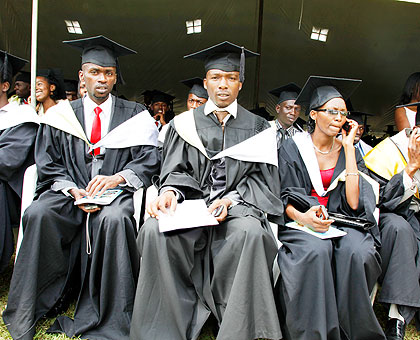Lack of a legal instrument and inadequate human resource continue to derail efforts to recover loans that are advanced to students for further studies.


Lack of a legal instrument and inadequate human resource continue to derail efforts to recover loans that are advanced to students for further studies. In an interview with The New Times, the Acting Director of Loan Payment and Recovery Unit in Rwanda Education Board (REB), Esther Mukasine Ndagije said the lack of clear legal framework to prosecute uncooperative employers and defaulters was the main stumbling block with regard to recovery of student loans. She said since the loan recovery process started in 2008, only Rwf4.5 billion out of Rwf70 billion had been recovered. REB targets to have recovered at least Rwf18 billion by the end of 2015.The loans in question are in form of grants given by government to students in higher institutions of learning, which they are supposed to reimburse after graduation. "There is no law which could enforce and determine penalties to the employers who refuse to make deductions and declarations on their employees who benefited from the government’s academic loan,” she said.The repayment of loans is done mainly through deduction of 8 per cent of the gross salary of employees on a monthly basis and deductions are deposited on recovery accounts."Few individuals have also voluntarily approached the unit and started repaying their loans but the majority of recipients are silent,” Mukasine said, citing employers and employees’ resistance among the challenges.She said they plan to make regular visits to organisations where the beneficiaries are employed to sensitise them on the need to honour their obligations.The official noted that there is a need to decentralise the loan recovery process, saying that the procedure is currently complicated by lack of human resource to cover all institutions where former beneficiaries are employed.Statistics from REB indicate that so far 329 employers have been contacted in a bid to trace the loan beneficiaries and that, by end of April, this year, 8,146 beneficiaries had already been contacted.


